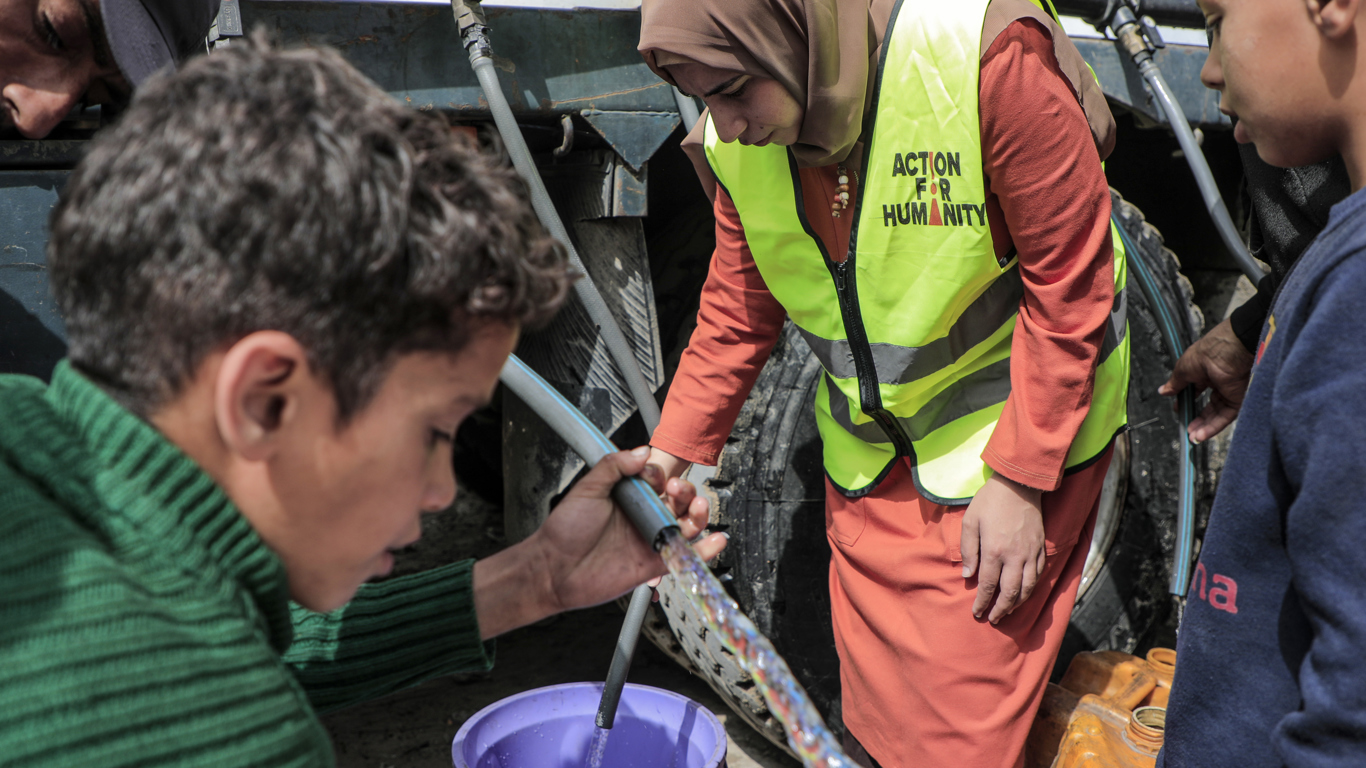How Israel is Weaponising Water in Gaza

2.1 million people in Gaza require urgent water, sanitation and hygiene assistance as the population continues to face the increasing risk of dehydration and disease.
The Aid Crisis in Gaza
In Gaza, relentless conflict continues to devastate communities, with over 50,000 lives being tragically claimed. The blockade of humanitarian aid over the past two months, coupled with the continued bombardment and displacement of civilians has further deepened the humanitarian crisis.
Israel’s deliberate halting of humanitarian aid into Gaza is a direct violation of International Humanitarian Law, denying the Palestinian people of essential aid necessary for survival such as food, water, medicines and fuel. This obstruction has created life-threatening conditions, with many experts like Amnesty, Human Rights Watch, and senior UN officials believing it to be genocide.
With only minimal supplies having recently been granted through as a part of the Israel and United States-backed Gaza Humanitarian Foundation, aid remains well below the requirement to sustain life in Gaza, reaching only 13% of the population upon its first distribution.
How is Water Being Weaponised?
The blockade of water assistance has had profound impacts on the survival of civilians in Gaza. Since October 2023, Israeli attacks have dismantled approximately 70% of Gaza’s water infrastructure including desalination plants, pipelines, and water wells, removing its ability to supply its population with safe, clean water. Furthermore, this destruction has caused a reliance upon aid, and the deliberate blockade has only further prevented water from reaching Gaza.
Water is vital for survival. It is the foundation for cooking, preventing the deterioration of health, as well as living life with dignity. Even before the blockade, testimonials from Palestinians described water as unsafe, contaminated, and difficult to access, with many resorting to risking their safety to find water, or even boiling seawater.
Shifa, a 70-year-old woman from Gaza spoke with our team,
“Every day, I sit by this fire, boiling sea water because we have no clean water to drink. The wind cuts through our fragile tent, and the rain seeps in. My body is weak from illness, but I have no choice. I must care for my husband and my grandchildren.”
Health conditions are also deteriorating rapidly; medical facilities that already lack resources are being forced to operate in unsanitary conditions. Women and girls who have been forcibly displaced also face unique challenges as functioning water and sanitation facilities are vital for safe menstruation, especially whilst supplies of dignity kits, carrying feminine hygiene products are dwindling.
What is Being Done to Support Civilians in Gaza?
A crisis of this proportion requires a humanitarian and policy response of equal scale. While we work to demand immediate action at every level of government, our teams on the ground are taking concrete steps despite the blockade to address the spiraling need by:
• Internally transporting over 500,000 litres of clean water just in the past month, reaching more than 100,000 people within Gaza.
Our commitment to Gaza didn't start with the current crisis, before the blockade we:
• Installed several solar water desalination plants and water tanks in Gaza and the West Bank, now benefiting over 50,000 people.
• Installed 60 mobile toilets for 2,500 internally displaced people.
• Delivered hygiene kits to 450 families (2,700 individuals), ensuring well-being and dignity.
With the arrival of aid trucks after the two month blockade carrying just 20% of Gazas daily pre-war aid requirements, the need remains immense.
Our Calls to Action
We reiterate our calls on the UK to end its potential or actual complicity in violations of international law, and act urgently to:
• Demand that Israel lift its blockades and allow for the unhindered entry of essential supplies which are critically lacking.
• Suspend all arms transfers, which continue to facilitate atrocities committed by Israeli forces.
• Call for an immediate ceasefire now.
There Are Ways You Can Help
• Use your social media platform to call out injustice where you see it.
• Donate to our distribution efforts.
• Join your local protests and demand justice for innocent civilians.
• Above all, continue to listen to the people who have been directly impacted by the crisis.
For media enquiries:
Action For Humanity
Jake Marais can be reached at: Jacob.marais@actionforhumanity.org or 07597 486 270

